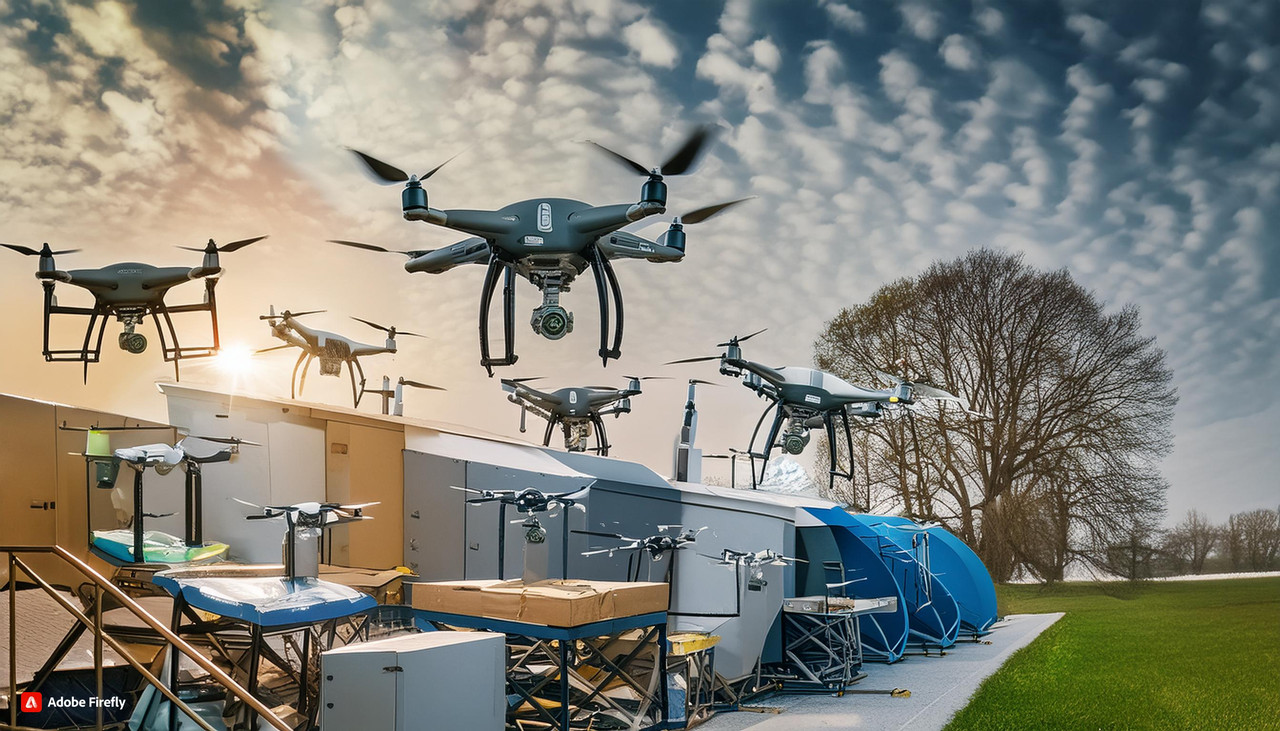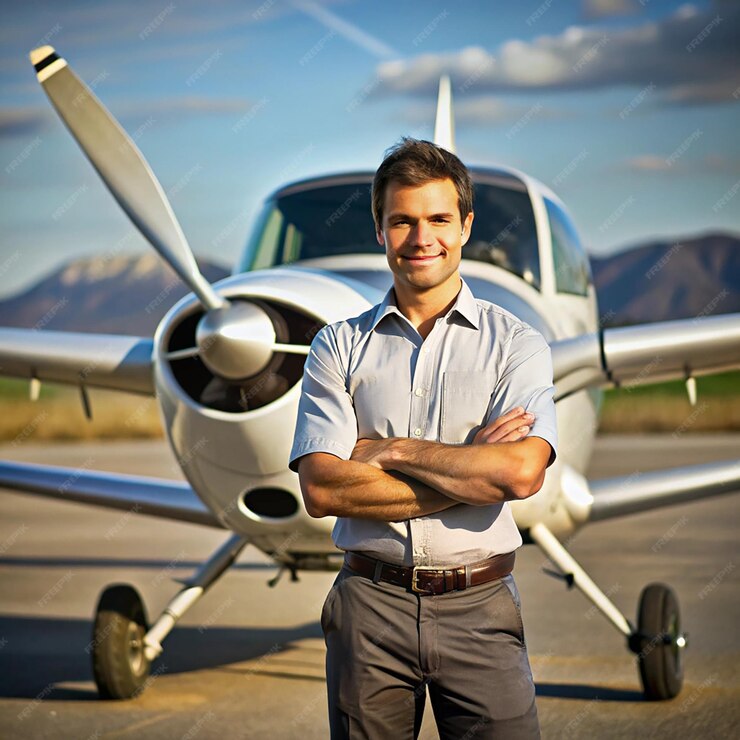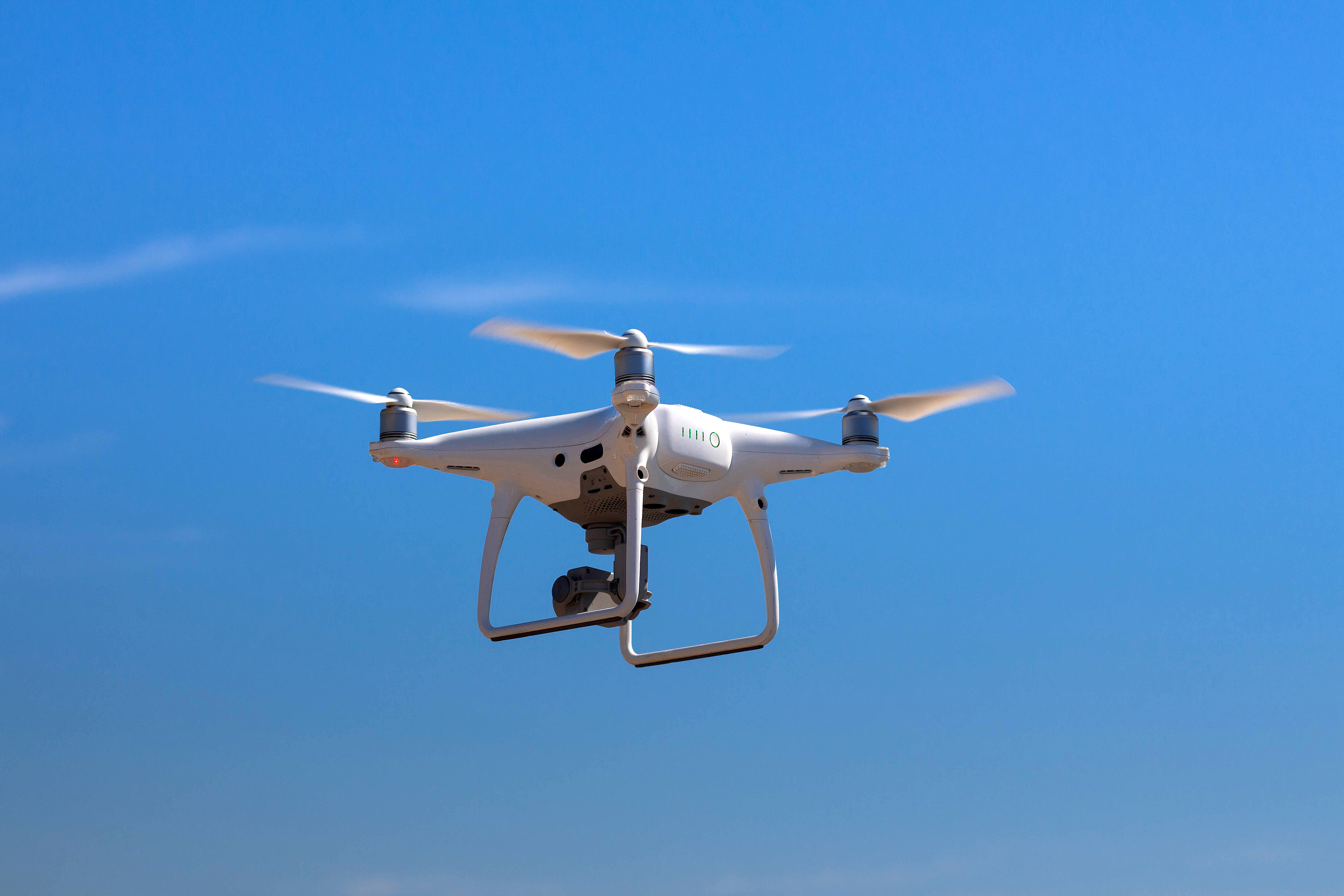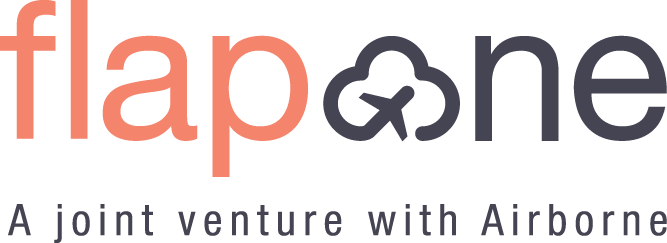
Opportunities Beyond Airlines: Alternative Careers with a CPL

If you are a CPL holder, then the sky is the limit for you, and you can go far beyond the traditional norms of piloting. If you want to do something different from just working as a commercial pilot for an airline, you can go far beyond the traditional route. There are many exciting career paths available for CPL holders.
Each of these jobs has unique rewards and challenges, attracting pilots who are interested in a less conventional flying career. This blog will help you learn about some non-airline pilot jobs to consider, adding a touch of thrill to your life.

Charter Pilots
• Aspiring pilots can become charter pilots. This is a unique profession, providing pilots the flexibility to steer between diverse environments contingent on the nature of their flights.
• Charter flights are distinguished by their exclusive method of air travel, where aircraft can be rented for a trip, rather than reserving seats as in commercial flights.
• This allows a personalized travel experience. Charter pilots can participate in commercial activities, similar to cargo pilots, provided they meet rigorous operational, safety, and maintenance requirements.

Corporate Pilots
• A corporate pilot job can also be considered as an alternative option for CPL holders. Corporate pilots play a vital role in the aviation industry, as they transport company executives on flights ranging from local to cross-country and international destinations.
• Having the ability to fly various multi-engine aircraft requires high skill and versatility, making the corporate pilot job both exciting and demanding.
• A corporate pilot needs technical expertise, flexibility, and competence. They can navigate various weather conditions and operate in and out of unacquainted airports worldwide.
• The dynamic nature of corporate aviation, with its opportunities to travel to diverse destinations, attracts pilots committed to delivering exceptional service in business travel.

MedEvac Pilots
• These pilots serve as a vital link between critically ill patients and the immediate medical care they require.
• Med Evac pilots steer the airplane through challenging conditions to reach those in need and awful situations. Their significance cannot be ignored, particularly in scenarios where common medical amenities are not readily accessible.
• Operating in perilous environments, MedEvac pilots often transport patients from accident sites, remote locations, or smaller hospitals to dedicated care centers. Their capability to respond quickly can mean the difference between life and death for patients.
• These pilots should not only possess the appropriate licenses and skills, but also the serenity to remain calm, often working closely with medical crews to ensure the safe delivery of patients to the appropriate medical facilities.
• Overall, these pilots serve as the glue between aviation expertise and lifesaving healthcare services, making this another non-airline pilot job that a person may want to follow after completing their flight training.

Sightseeing/Tour Pilots
• Sightseeing or tour pilots offer their passengers unforgettable aerial experiences. A job as a sightseeing pilot offers the prospect of flying along scenic routes, showcasing spectacular scenery and even historical landmarks to tourists.
• The role of these pilots extends beyond just flying an aircraft; tour pilots act as aerial guides, providing insightful information on the sights below and answering questions related to the areas being explored.
• Sightseeing pilots follow a predetermined flight path that starts and ends at the same airport, creating an attractive journey for their guests. These pilots might help passengers by dropping them off at precise locations and then returning later for pickup.
• While several of these pilots work with tour companies handling marketing and customer relations, others choose to work independently.
• A sightseeing pilot, choosing to work independently, crafts a passion for their own aerial experiences for passengers.
• Regardless of their employment arrangement, whether contracted or independent, these pilots have a passion for flying with hospitality, ensuring that each flight is not only a means of transportation but also an unforgettable experience for the passengers on board.

Flight Instructor
• Flight instructors play an important role in shaping the next generation of pilots. They instill an innate culture of safety and competence in their students. For pilots who wish to remain in the educational realm of the aviation industry, this is a perfect career path to consider.
• While several pilots aspire to fly for airlines, the role of a flight instructor offers various rewards that can be equally fulfilling for some.
• One of the most substantial benefits of choosing this career is the satisfaction that comes from teaching.
• Flight instructors can witness the growth of the students, from their first flight to completing their first solo flight. This can be a rewarding experience for many pilots.
• Flight instructing also offers a more balanced lifestyle compared to the stringent schedules of an airline pilot. Instructors have more reliable work hours and the capability to be home each night, which some people may prefer.
• This allows a more stable routine and an improved work-life balance. This regularity can primarily appeal to those who value spending time with their family or pursuing interests outside of aviation.
• In due course, becoming a flight instructor exemplifies both the love of aviation one has and a desire to continue propelling the industry forward by training the next generation of pilots.

Some Other Interesting Careers in the Aviation Industry for CPL Holders
If you have a commercial pilot license, but you want to do a job other than flying a plane or not take up flying at all, you can always think about the following careers.
- Drone Pilot- A drone pilot can come in handy in performing aerial surveying, drone deliveries, drone mapping and industrial inspections.
- Air Traffic Controller- He/ she is a professional, known for managing airspace and guiding aircraft safely.
- Aviation Safety Inspector- Collaborate with the DGCA to ensure compliance.
- Aircraft Dispatcher- This job is responsible for planning and coordinating airline flight operations.
- Simulator Instructor- They are professionals who train pilots using flight simulators.
- Corporate Aviation Manager- The role of a corporate aviation manager is to oversee the operations of private and corporate jets.
- Aviation Consultant- These professionals have all the know-how in training, safety, and operations.
- Aviation Writer/Blogger- If you are in this profession, your primary role is to share aviation insights through blogs, podcasts or vlogs.
- Aviation Entrepreneur- If you hold a pilot's license, you can also start your own flight school, charter company, or aviation service.
- Aerospace Manufacturing Specialist- These professionals work with aircraft manufacturers during the development and testing process.

Non-Aviation Careers Utilizing CPL Skills
- Logistics & Supply Chain Manager- One can also utilize flight planning skills in supply chain operations.
- Defence & Security -There is also a chance for CPL holders to work in military drone programs or border surveillance.
- Meteorologist- The role of a meteorologist is to offer weather insights for flight operations.
- Motivational Speaker- These are the individuals who can share valuable insights on leadership and risk management.
- Aviation Sales & Marketing- CPL holders also have opportunities in aircraft sales, flight school marketing or the sale of aviation products.
- Government Aviation Advisor -These are professionals whose work is to develop aviation policies and regulations.
- Airline Operations Manager- These aviation professionals oversee daily airline operations.
- Human Factors Specialist- A human factors specialist works on aviation psychology and crew resource management.
- Data Analyst for Aviation- Utilize flight data analytics to improve safety and performance.
- Technical Writer for Aviation- These professionals' work in the aviation industry involves creating aircraft manuals, regulatory documents, and Standard Operating Procedures.
Coming to a Concrete Close
Following a career of your dreams is vital, as it transforms work into a fulfilling journey. For many people, becoming a pilot represents a chance to soar in their professional lives. However, aviation offers many paths beyond commercial piloting. As aspiring pilots prepare to take to the skies, it’s also good to consider non-airline pilot careers. By broadening their horizons, pilots can identify a niche that not just matches their skills but also aligns with their goals and interests, guaranteeing that every day feels like a dream.
If you want to hold a commercial pilot's license, you must choose a reputable flight school. Flapone Aviation is one of the premier aviation training institutes in Delhi-NCR offering top-class theoretical and practical training to become a skilled pilot. Then, it is up to you to choose the career of your choice.
Related Blog
Latest updates and insights from Flapone Aviation.

What Types of Drones Are Present in the Market?
October 8, 2024

How to Become a Pilot After 12th in India?
February 7, 2025

What are the Basics of Drone Piloting?
February 7, 2025




Author Bio
A dynamic and seasoned content writer with 6 years of experience curating content for different platforms. With the knowledge of all the cogs of content writing and SEO, he has served in various industries. He believes that content is the kingpin, and if penned well, it has a lasting impact on the minds of the readers. Apart from content creation, he is also an ardent poetry lover and performer. He has two publications of his poetry collection, namely Alfaaz and Chestha